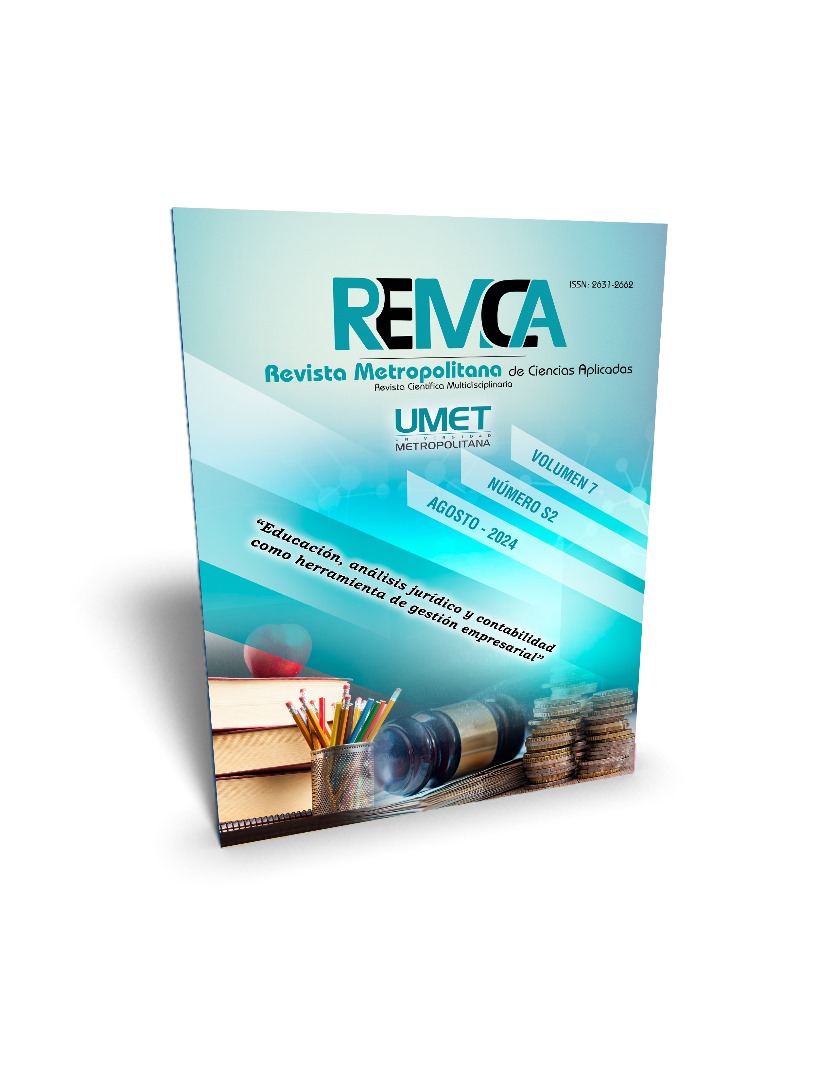Gamification as a teaching strategy to promote reading in students of the Education major
DOI:
https://doi.org/10.62452/3v7v0v15Keywords:
Education, adult education, higher education, methodology, reading, oral readingAbstract
This article was approached with the aim of implementing gamification as a didactic strategy to promote reading in students of the education career, for which an empirical epistemological approach was used, a descriptive scope, under quasi-experimental applied research. The study population consisted of students from the Education program at the Catholic University of Cuenca, categorized into two groups, 40 students in the control group and 40 students in the intervention group. The results of the post-test, when contrasted with the previous tests between both the control group and the intervention group, reflected important advances in terms of students' interest in reading, the incentive to read texts of interest and also generated a greater promotion of reading among students who were instructed with gamification strategies. From the data obtained and later contrasted through the Student T test, a P value of 0.000 was identified, being possible to conclude that the application of gamification strategies contributes favorably to the reading habits of the participants who were part of the intervention group.
Downloads
References
Altamirano, D., López, D., Ojeda, E., Tunja, D., Paredes, M., Sánchez, N., & Gómez, M. (2022). Metodologías activas de enseñanza: Una mirada futurista al desarrollo pedagógico docente. Polo Del Conocimiento, 7(2), 1419–1430. https://doi.org/10.23857/pc.v7i2.3654
Barrera, E., García, D., Mena, S., & Erazo, J. (2020). Estrategias tecnológicas para fomentar la lectura en niños de 5 a 7 años. CIENCIAMATRIA, 6(16), 464-484. https://doi.org/10.35381/cm.v6i1.342
Calle, A., & Castro, A. (2022). Desarrollo de la lectoescritura con gamificación en niños del segundo de básica. Ciencia Digita, 6(4), 116-136. https://doi.org/10.33262/cienciadigital.v6i4.2339
Carbajal, P., Rodríguez, J., Palacios, J., & Ávila, G. (2022). Gamificación como técnica de motivación en el nivel superior. Horizontes. Revista de Investigación en Ciencias de la Educación, 6(23), 484-496. https://doi.org/10.33996/revistahorizontes.v6i23.351
Chans, G., & Portuguez, M. (2021). La gamificación como estrategia para aumentar la motivación y el compromiso de los estudiantes de química de la educación superior. Computadoras, 10(10), 1-12. https://doi.org/10.3390/computers10100132
Curay, X., Ramón, L., & Fernández, D. (2021). La gamificación como estrategia para motivar el aprendizaje de la lectura críticoreflexiva. South Florida Journal of Development, 2(2), 2562-2575. https://ojs.southfloridapublishing.com/ojs/index.php/jdev/article/view/369
Macanchí, M., Orozco, B., & Campoverde, M. (2020). Innovación educativa, pedagógica y didáctica. Concepciones para la práctica en la educación superior. Revista Universidad y Sociedad, 12(1), 396-403. http://scielo.sld.cu/scielo.php?script=sci_abstract&pid=S2218-36202020000100396
Martínez, G., & Ríos, J. (2019). Gamificación como estrategia de aprendizaje en la formación de estudiantes de Ingeniería. Estudios pedagógicos (Valdivia), 45(3), 115-125. http://dx.doi.org/10.4067/S0718-07052019000300115
Montes, A., Barrios, D., & Parra, M. (2023). Gamificación, una estrategia didáctica para mejorar la lectura inferencial en una institución educativa de Casanare, Colombia. Uniminuto, 18(23), 1-16. https://doi.org/10.26620/uniminuto.perspectivas.8.23.2023.72-85
Posligua, M., Espinel, J., Posligua, J., & Jiménez, S. (2022). La gamificación como motivación en el aprendizaje de la lectoescritura. Uniandes EPISTEME, 9(2), 231-243. https://dialnet.unirioja.es/descarga/articulo/8477237.pdf
Poveda, D., Cifuentes, J., & Limas, S. (2023). La gamificación como estrategia de aprendizaje en la educación superior. Educación y Educadores, 26(1), 1-8. https://doi.org/10.5294/edu.2023.26.1.2
Sánchez, C., García, E., & Ajila, I. (2020). Enfoque pedagógico: la gamificación desde una perspectiva comparativa con las teorías del aprendizaje. . Digital Publisher CEIT, 4(5), 47-55. https://doi.org/10.33386/593dp.2020.4.202
Universidad Católica de Cuenca. (2022). La Universidad Católica de Cuenca presentó informe de rendición de cuentas. https://www.ucacue.edu.ec/la-universidad-catolica-de-cuenca-presento-informe-de-rendicion-de-cuentas/
Vargas, M., & Daveziez, W. (2022). Metodologías de enseñanza universitaria: un reto para el docente universitario. Revista Ciencia, Tecnología e Innovación, 20(26), 11-33. https://doi.org/10.56469/rcti.vol20n26.704
Vásquez, J. (2021). Gamificación en educación: una revisión del estado actual de la disciplina. Revista Digital del Doctorado en Educación de la Universidad Central de Venezuela, 7(13). https://dialnet.unirioja.es/descarga/articulo/8293878.pdf
Vázquez, J., Escamilla, A., & Guzmán, R. (2020). Cambio de paradigma en la educación. ARM, 42(2), 132–137. https://doi.org/10.35366/95373
Zambrano, A., Lucas, M., Luque, K., & Lucas, A. (2020). La Gamificación: herramientas innovadoras para promover el aprendizaje autorregulado. Dominio de las Ciencias, 6(3), 349-369. http://dx.doi.org/10.23857/dc.v6i3.1402
Downloads
Published
Issue
Section
License
Copyright (c) 2024 Nancy Paola García-Cárdenas, Ana Zulema Castro-Salazar (Autor/a)

This work is licensed under a Creative Commons Attribution-NonCommercial-ShareAlike 4.0 International License.
Authors who publish in Revista Metropolitana de Ciencias Aplicadas (REMCA), agree to the following terms:
1. Copyright
Authors retain unrestricted copyright to their work. Authors grant the journal the right of first publication. To this end, they assign the journal non-exclusive exploitation rights (reproduction, distribution, public communication, and transformation). Authors may enter into additional agreements for the non-exclusive distribution of the version of the work published in the journal, provided that acknowledgment of its initial publication in this journal is given.
© The authors.
2. License
The articles are published in the journal under the Creative Commons Attribution-NonCommercial-ShareAlike 4.0 International License (CC BY-NC-SA 4.0). The terms can be found at: https://creativecommons.org/licenses/by-nc-sa/4.0/deed.en
This license allows:
- Sharing: Copying and redistributing the material in any medium or format.
- Adapting: Remixing, transforming, and building upon the material.
Under the following terms:
- Attribution: You must give appropriate credit, provide a link to the license, and indicate if any changes were made. You may do this in any reasonable manner, but not in any way that suggests the licensor endorses or sponsors your use.
- NonCommercial: You may not use the material for commercial purposes.
- ShareAlike: If you remix, transform, or build upon the material, you must distribute your creation under the same license as the original work.
There are no additional restrictions. You may not apply legal terms or technological measures that legally restrict others from doing anything the license permits.




